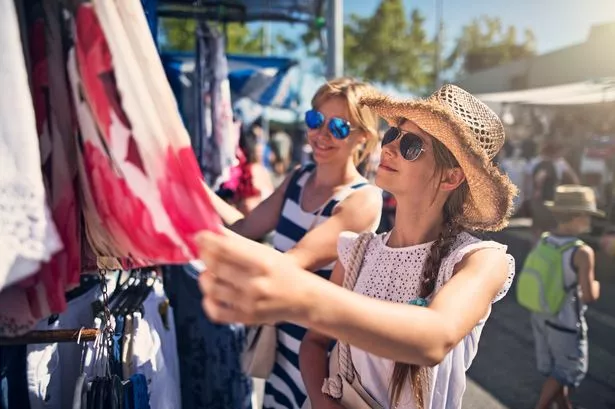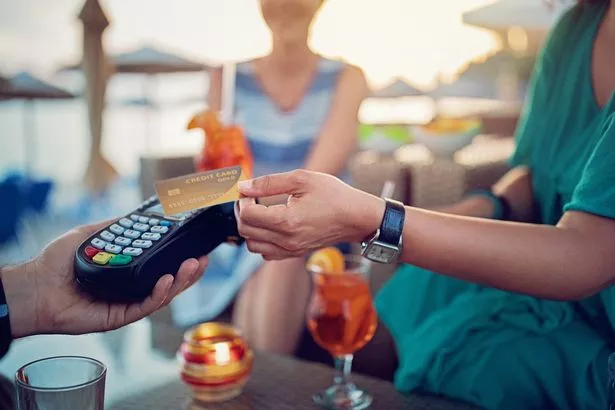A poll of 2,000 travellers found three in 10 felt they have often paid more for something on holiday because they were a tourist
Holidaymakers have shared some of the priciest purchases they have unintentionally made while abroad. A survey of 2,000 travellers revealed that three in 10 felt they had often been charged more for items on holiday due to their tourist status. One unlucky holidaymaker shelled out £30 for a single glass of Coca-Cola in Rome, while another unsuspectingly bought a T-shirt for £80, believing it was only £10.
Other surprising expenses reported by respondents included paying a staggering £48 for a single shot of whiskey. Another person spent £25 on a taxi ride in Amsterdam, only to discover their destination was less than a mile away.
The study, conducted by the Post Office, indicated that travellers frequently struggle with ‘currency confusion’ – becoming muddled about the value of money ‘in pounds’ when they are away. This has resulted in a quarter of people paying more than they anticipated for an item.
The most common currency conversion for Brits, changing to euros, also baffled respondents, with nearly a third unsure of how much £5 would equate to in Euros. Moreover, 40% were in the dark about the conversion rate for dollars.
According to the survey, four out of ten try to calculate local currency rates in their heads, while 6% will ask someone nearby and then take their word for it.
Laura Plunkett, head of travel money at Post Office, commented: “Our research reveals many travellers overestimate their ability to mentally convert currencies on the go, and that can lead to overspending. We wanted to highlight how easily confusion around exchange rates can impact holiday budgets – no one wants to waste time abroad worrying about money. “
The study was commissioned to promote the Post Office’s Travel Money Card, as well as their Travel App which allows holidaymakers to check exchange rates and monitor spending in real time.
Currently, 17% rely on conversion apps to work out how much they are spending. “It’s surprising that only 19% of travellers use a prepaid travel card for their spending abroad when it can allow travellers to lock in a good rate before travelling,” Laura said.
Meanwhile, 49% utilise a separate card not connected to their primary bank account for overseas spending in an effort to safeguard their ‘main funds’ from fraudsters or thieves.
Laura further stated: “Nothing disrupts a holiday like a financial mishap. Keeping your travel money separate from your main account is a smart move to give you greater control, clearer visibility of what you’re spending.
“Whether you’re budgeting carefully or just want to avoid mixing travel purchases with everyday costs, this small step can make a big difference to your trip.”

